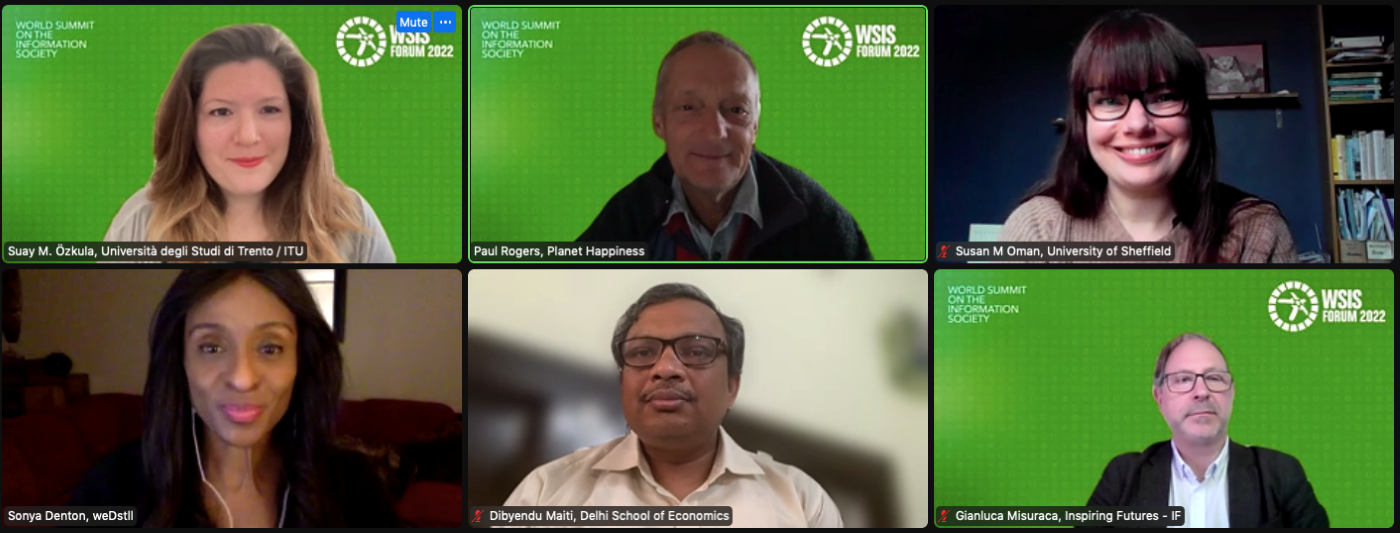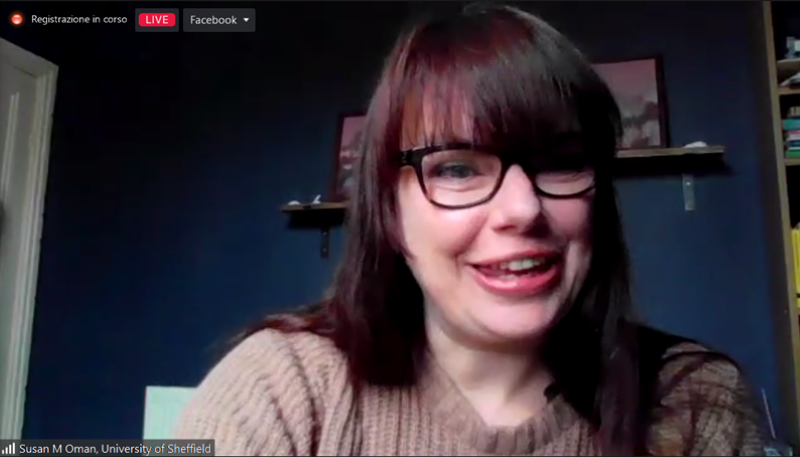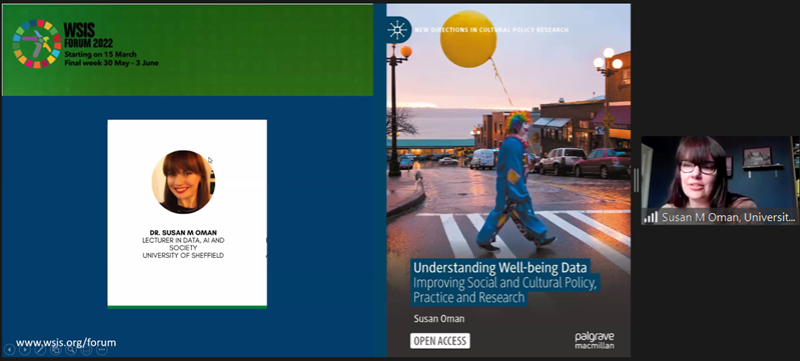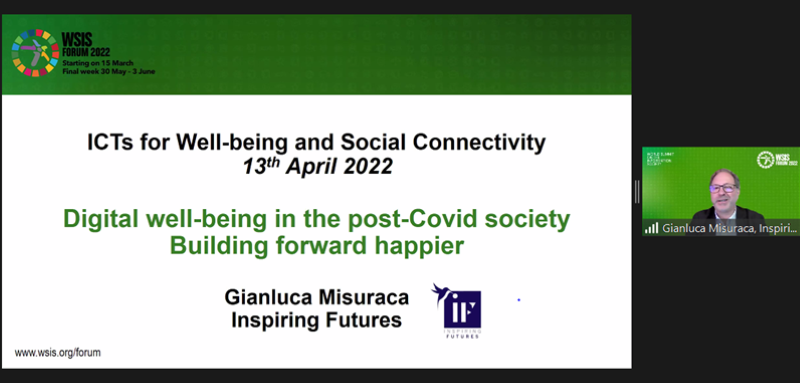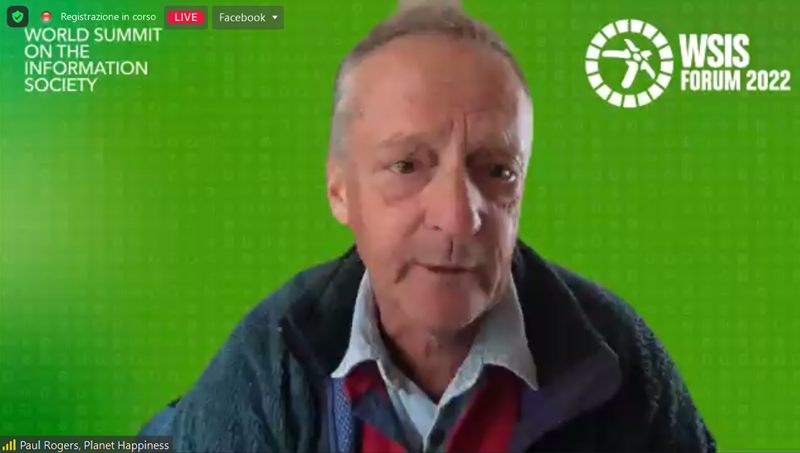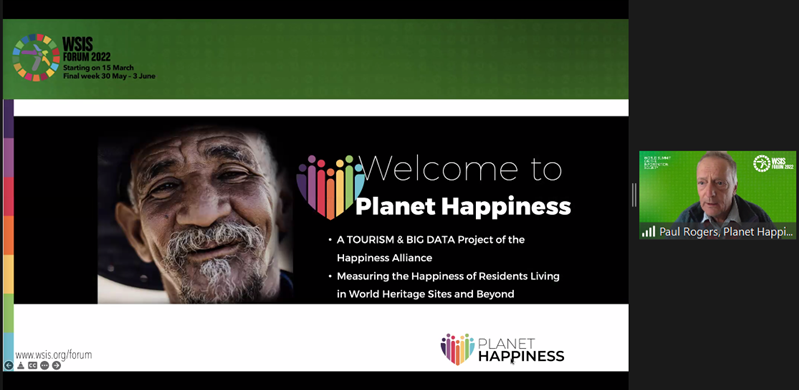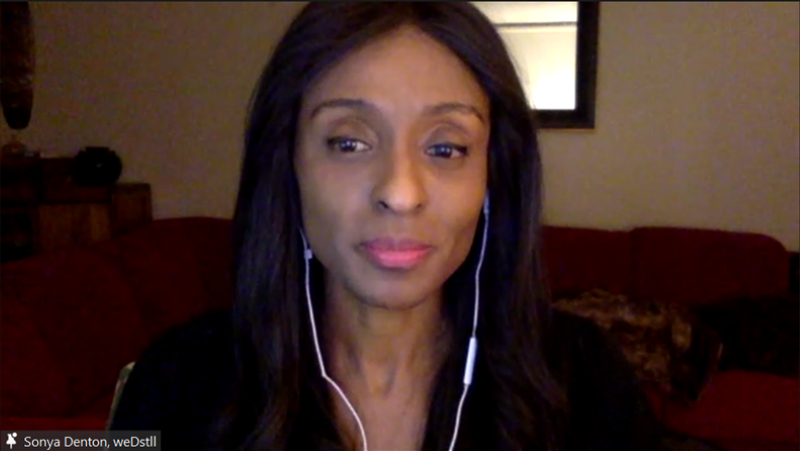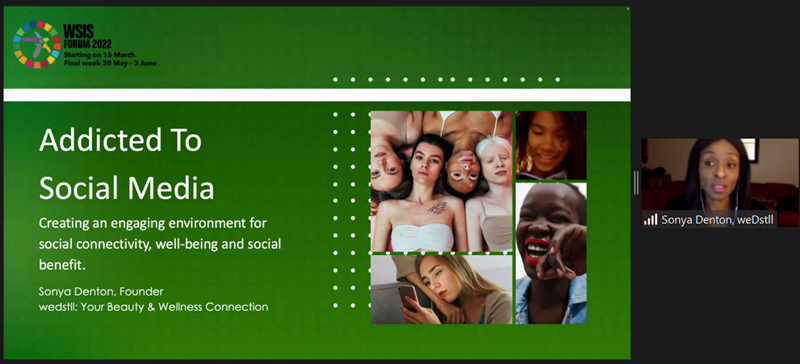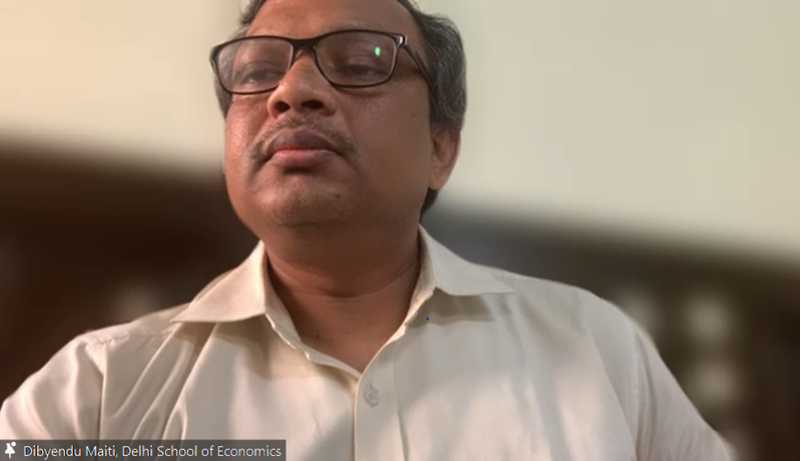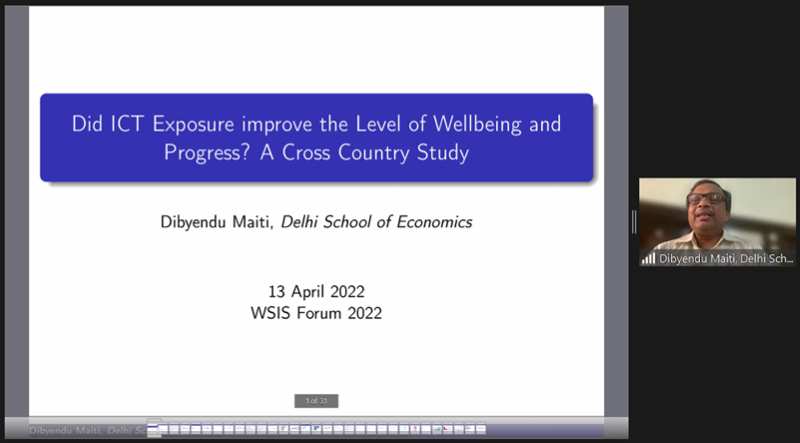ICTs for Well-being and Social Connectivity
WSIS
Session 268
Information and Communication Technologies (ICTs) are tools to improve the quality and health of lives, including happiness and the promotion of well-being for all ages. There are a variety of forms and manifestations of well-being, among which are emotional well-being, physical well-being, spiritual well-being, workplace well-being, and social well-being. Social well-being has assumed growing relevance and attention in recent years, also due to the outbreak of Covid-19. It can be defined as the sense of belonging to a community or contributing to society, and more basic as the sharing, developing, and sustaining of meaningful relationships with others.
In this regard, the session on ICTs for Well-being and Social Connectivity is meant to be an exchange of knowledge, good practices, research, and discussion related to the use of ICTs for enhancing social well-being and our connection with others.

Dr. Suay M. Özkula is a Marie Skłodowska-Curie Research Fellow in the School of International Studies at the Università degli Studi di Trento (Italy) and a Visiting Research Fellow at the ITU. Her current project looks at international experiences of digital political empowerment in crowdsourcing initiatives on climate change.
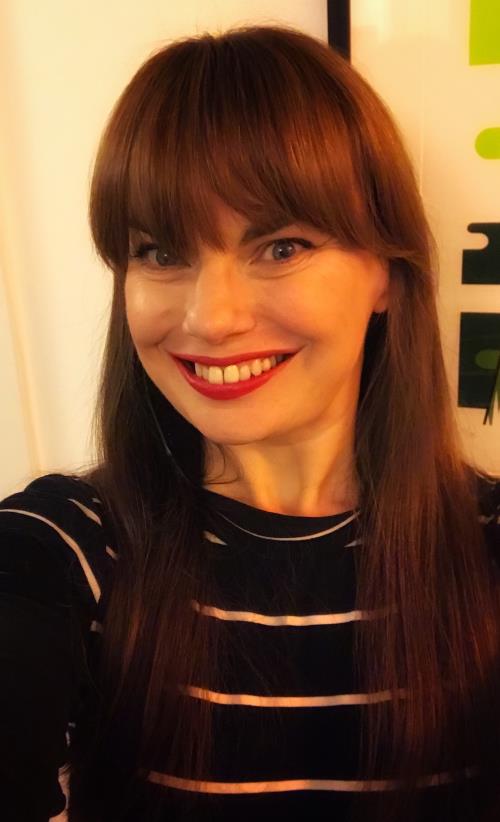
Dr Susan Oman is Lecturer in Data, AI and Society at the University of Sheffield. Susan researches how data and evidence work – in context and in practice, looking at particular policy issues, such as well-being and inequality. Her book ‘Understanding Well-being Data Improving Social and Cultural Policy, Practice and Research’ is available as open access. Her website is: well-beingdata.com.
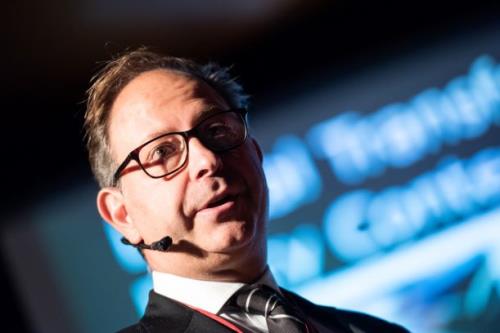
Gianluca Misuraca is founder and Vice President on Technology Diplomacy and International Relations of Inspiring Futures (IF), a global advisory consultancy in Strategic Foresight, Social Innovation and Digital Governance with headquarters in Lausanne and Seville.
He is also an advisor to several International Organizations, and development institutions worldwide. Among his key assignments he is currently leading, on behalf of the European Commission’s Service for Foreign Policy Instruments (FPI) and DG CONNECT, the multi-year facility support initiative “International Outreach for human-centric Artificial Intelligence” (InTouchAI.eu) and the design of the Multilateralism and Digitalisation Strategy for the European Commission’s DG INTPA, as well as supporting the preparation of the Strategic Foresight Report on Green and Digital Transition 2050.
As part of his academic roles, Gianluca is the Executive Director of the Master on Artificial Intelligence in public services (AI4GOV) led by the Universidad Politécnica de Madrid, a Senior Research Associate at the Department of Design of Politecnico di Milano and a Research Fellow at the Department of eGovernance and Administration of Danube University Krems in Austria. Furthermore, he is a Special Advisor on Digital Public Administration for the Centre for Digital Economy (CED) and on Democracy in the Digital Age for Re-Imagine Europa (RIE).
Previously, Gianluca was a Senior Scientist at the European Commission's Joint Research Centre where, from 2009 to 2020, leading research and policy support in the field of Digital Government Transformation, Social Innovation and Artificial Intelligence for the public sector as part of the AI Watch. His educational background is economics and business administration, with focus on the interface between ICTs and public sector innovation. He holds a Diploma of Specialisation in High Level Studies in EU Economics and Law, an Executive Master in eGovernance and a PhD in Management of Technology from the Ecole Polytechnique Fédérale de Lausanne (EPFL).
Contact: gm@inspiringfutures.ch / gianluca.misuraca@gfa-group.de / gianluca.misuraca@upm.es
LinkedIn profile: https://www.linkedin.com/in/gianluca-misuraca-4a04a61/
Twitter: @gianlucamisu

Dr. Paul Rogers is one of Asia-Pacific’s most experienced tourism for development practitioners. Completed in 1997, his PhD centered on tourism, conservation and development issues in Nepal’s Sagarmatha (Mt Everest) National Park. Paul is a long-term expert consultant with the United Nations World Tourism Organisation, the World Bank, ADB and numerous other international organisations, he has worked extensively in Nepal, Bhutan, Laos and the Greater Mekong Region, as well as Myanmar, North Korea, North-West Africa and Australia.
Paul is co-founder of Planet Happiness a tourism and big data project of the non-profit, the Happiness Alliance. Inspired by several assignments in Bhutan, Planet Happiness focuses the attention of all tourism stakeholders on the well-being agenda; to use tourism as a vehicle for development that demonstrably strengthens destination sustainability and the quality of life of host communities.

Sonya Denton is the founder and CEO of wedstll /wē-dəˈstil/: Your Beauty & Wellness Connection. A mobile platform that empowers young people to create their own safe wellness spaces to meet their needs through collaboration and shared experiences with values-aligned people and brands, judgement-free.
Sonya is passionate about the well-being of young people because for a decade as a broadcast journalist interviewing countless people, she discovered that one of the few things we want in life is to matter. She learned this first-hand by growing up trying to “fit in” instead of finding people who supported her self-expression.
Today, she sees young people on social media putting their mental health at risk to also "fit in" in search of self-validation. But instead, the young people she and her team regularly interview end up feeling that they don’t measure up. They ask, “Why can’t I be me and matter too? It’s why she’s on a mission to empower people to create their own safe spaces to build trusted connections and find solutions to meet their immediate wellness needs. No Judgement. No Overthinking. Just Being.
wedstll will be available for download in Canada in Summer 2022.
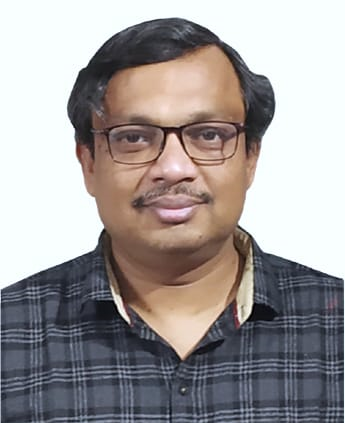
Dr. Dibyendu Maiti is a Professor of Economics at the Delhi School of Economics. Prior to this, he worked at the University of the South Pacific, Institute of Economic Growth Delhi, Centre for Studies in Social Sciences Calcutta and held various research positions at the University of Manchester, University of Nottingham, Max Planck Institutive of Economics (Jena), Norwegian Institute of International Affairs (Olso). He received Max-Planck India Fellowship, ICSSR-ESRC exchange, ICSSR-CASS exchange, and ICSSR-JSPS fellowship. He specialises in international trade and development macroeconomics and publishes articles including in Journal of Development Economics, Social Research Indicators, Journal of Productivity Analysis, Labour Economics, Economic Modelling, International Review of Economics and Finance, Cambridge Journal of Economics, American Behavioural Scientists etc. He is an associate editor of Progress in Development Studies (Sage). He received IDRC Young India Social Sciences Award, in 2010 and Global Development Network Award, in 200
-
 C1. The role of governments and all stakeholders in the promotion of ICTs for development
C1. The role of governments and all stakeholders in the promotion of ICTs for development
-
 C2. Information and communication infrastructure
C2. Information and communication infrastructure
-
 C3. Access to information and knowledge
C3. Access to information and knowledge
-
 C4. Capacity building
C4. Capacity building
-
 C6. Enabling environment
C6. Enabling environment
-
 C7. ICT applications: benefits in all aspects of life — E-health
C7. ICT applications: benefits in all aspects of life — E-health
-
 C10. Ethical dimensions of the Information Society
C10. Ethical dimensions of the Information Society
-
 Goal 3: Ensure healthy lives and promote well-being for all
Goal 3: Ensure healthy lives and promote well-being for all
-
 Goal 4: Ensure inclusive and equitable quality education and promote lifelong learning opportunities for all
Goal 4: Ensure inclusive and equitable quality education and promote lifelong learning opportunities for all
-
 Goal 8: Promote inclusive and sustainable economic growth, employment and decent work for all
Goal 8: Promote inclusive and sustainable economic growth, employment and decent work for all
-
 Goal 10: Reduce inequality within and among countries
Goal 10: Reduce inequality within and among countries
-
 Goal 16: Promote just, peaceful and inclusive societies
Goal 16: Promote just, peaceful and inclusive societies
